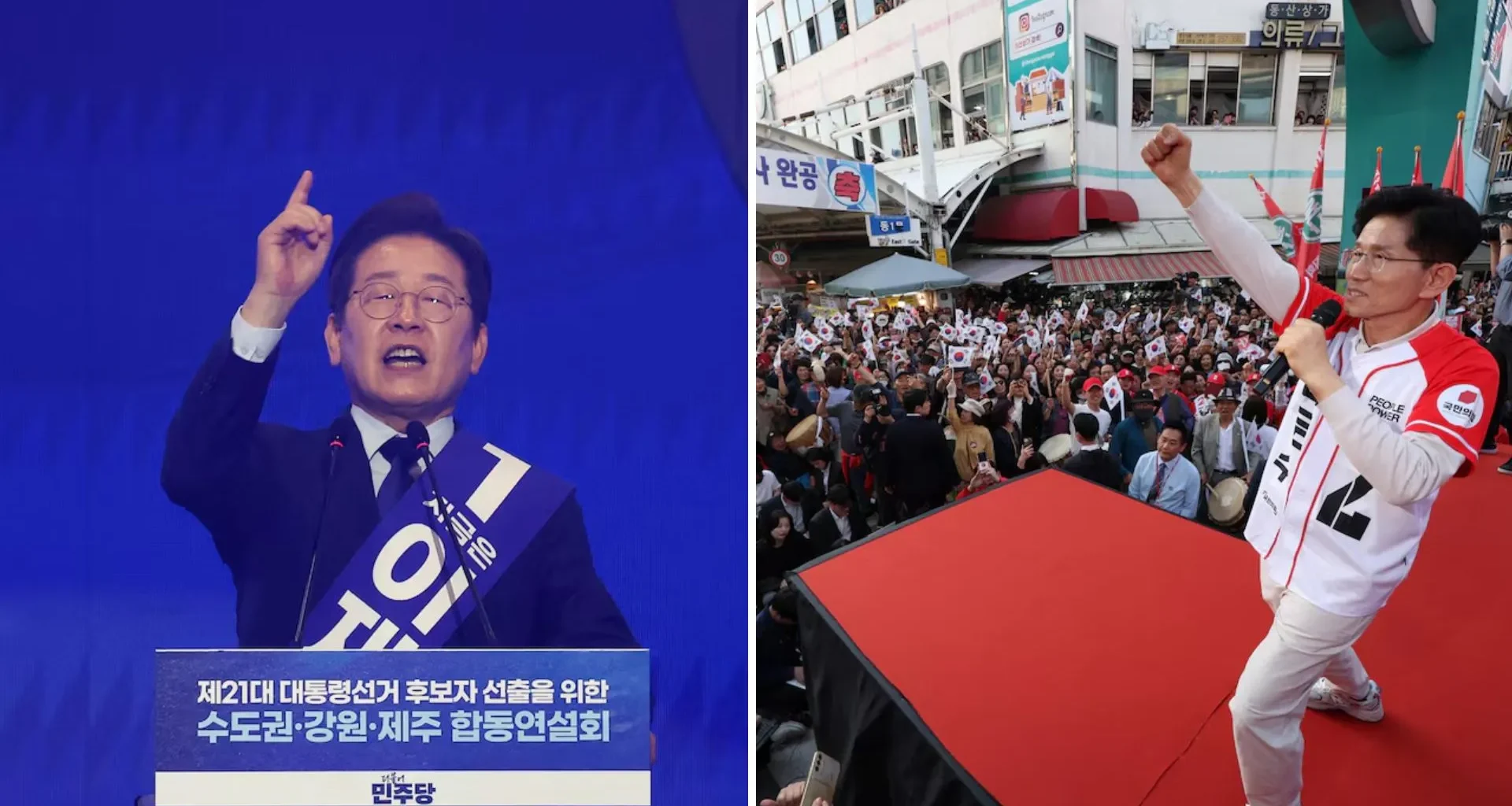South Korea’s presidential candidates engaged in a fiery TV debate on Sunday evening as the country gears up for a snap election on June 3.
South Korea’s presidential candidates engaged in a fiery televised debate on Sunday evening, as the country gears up for a snap election on June 3, Reuters reported. The debate, held just weeks after the impeachment of former President Yoon Suk Yeol over his martial law declaration in December, saw leading candidates clash over foreign policy, economic strategy and domestic reforms.
Lee Jae-myung, the frontrunner and candidate for the main opposition Democratic Party, found himself at the center of the debate. He has faced sharp criticism from his opponents over his stance on China, particularly his comments suggesting that South Korea should avoid becoming embroiled in the ongoing China-Taiwan tensions.
Despite this, Lee, who emphasizes pragmatism in his foreign policy approach, defended his position. “We should not go all-in on our alliance with Washington,” Lee stated, adding that balancing relations with China and Russia is essential, while still recognizing the importance of security cooperation with the U.S. and Japan. “Managing our relations with China and Russia carefully is critical, but security cooperation with the U.S. and Japan must continue,” he explained.
Lee also laid out his vision for South Korea’s future, emphasizing economic revitalization through cutting-edge technology. “We will focus on developing so-called sovereign AI, so our people can at least use something like ChatGPT for free, like an electronic calculator,” he said, while also advocating for a shorter workweek, a 4-1/2-day working week, and stronger protections for unionized workers.
In addition, Lee called for more investment in artificial intelligence and renewable energy industries to address the country’s sluggish economic growth. He also voiced skepticism about rushing into a new trade agreement with Washington, stressing that South Korea should be cautious and strategic in its negotiations. “I think we should prepare well for this situation delicately and competently,” he said.
On the other side of the debate, Kim Moon-soo, candidate for the conservative People Power Party, focused on job creation and deregulation. He promised to foster a business-friendly environment through regulatory reforms and a stronger emphasis on economic growth.
Both candidates are seeking to address South Korea’s economic challenges as the country grapples with a slowing economy. The country contracted in the first quarter of this year, with exports and consumption stagnating, while fears grow over the impact of the U.S.’s aggressive tariffs. The South Korean government has initiated trade talks with Washington, aiming to secure a waiver from the 25% tariffs imposed by U.S. President Donald Trump in April. These tariffs were levied amid ongoing trade disputes, prompting South Korea to seek a resolution quickly.
Lee has proposed a massive investment in AI, pledging 100 trillion won ($71.5 billion) to boost the sector, and has promised tax incentives for domestically manufactured semiconductors. Meanwhile, Kim has promised to establish a government agency dedicated to innovation and vowed to allocate more than 5% of the national budget to research and development.
The latest Gallup Korea poll released on Friday shows Lee leading with 51% of support, while Kim trails significantly with 29%.
Political Turmoil and Constitutional Reform
The election follows significant political turmoil in the country after the impeachment of former President Yoon Suk Yeol. Yoon’s ouster came in the wake of his brief declaration of martial law on December 3, 2023, which sparked widespread protests and led to his removal from office.
In light of the political upheaval, Lee has proposed constitutional reforms to limit presidential power. “We must gather the people’s strength to root them out and strictly hold them accountable,” Lee said, referring to those responsible for the martial law declaration. He also called for a referendum to change South Korea’s presidential system to allow for a four-year, two-term presidency and the introduction of a two-round system for elections. Currently, South Korean presidents serve a single five-year term.
Read More
